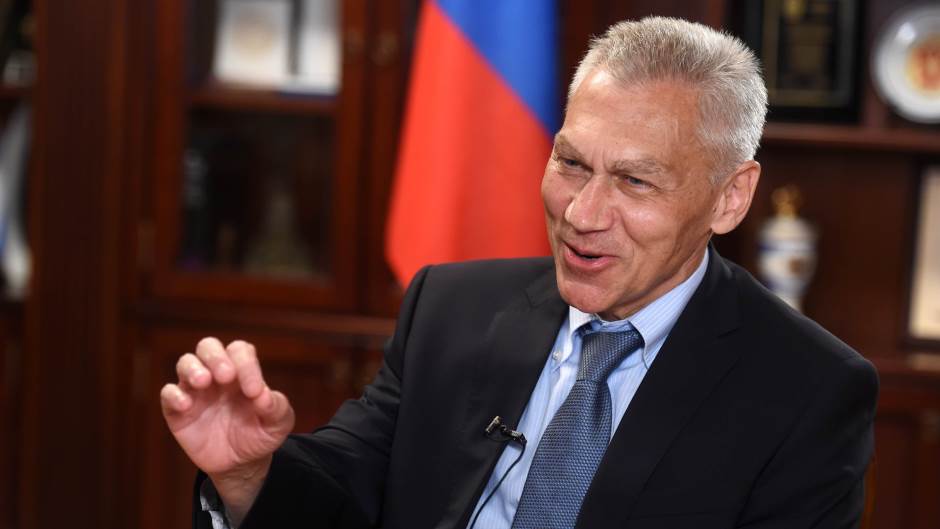Russian Ambassador to Serbia says OHR in BiH should be abolished

Russia is certain that the normalization of the situation in BiH should be within the internal dialogue, strictly on the basis of the Dayton Peace Agreement, and that the protectorate - the Office of the High Representative (OHR) should be closed, Russian Ambassador to Serbia Alexander Botsan-Kharchenko said.
Oglas
"The Office of the High Representative in BiH (which oversees the implementation of the civilian aspect of the Dayton Peace Agreement that ended the 1992-1995 war in BiH) should be closed, it is inappropriate in the current conditions. In our opinion, that approach fully corresponds to the interests of our countries, as well as to the tasks of strengthening the security and stability in the Balkans and in the whole of Europe," Botsan-Kharchenko pointed out.
In an Op-Ed. for Belgrade's "Politika" daily, on the occasion of 220 years of Russian diplomacy, Botsan-Kharchenko pointed out that Russia would continue the close cooperation with Serbia in relation to Kosovo to ensure Belgrade's legitimate interests guaranteed by the UN Security Council Resolution 1244.
"On that basis, negotiations between Belgrade and Pristina should be built with the mediation of the EU, without favouring the Kosovo Albanians," Botsan-Kharchenko noted.
As for other topics, he stated that Russia's strategic priority is the creation of a "great Eurasian partnership" from Lisbon to Vladivostok and that Moscow is committed to a political solution to conflicts and that it respect for all UN charters, international law and the central role of the UN.
The Ambassador added that Russia supports the political resolution of conflicts, including the internal Ukrainian crisis, as well as the unification of international efforts to prevent cross-border challenges and threats, and stressed the need to form a new "security equation" that takes into account all interrelated factors of strategic stability.
Russia, he noted, insists on providing precise, secure, legally binding security guarantees on the European continent, based on the principle of "indivisibility of security", established in the 1999 Charter for European Security in Istanbul.
Botsan-Kharchenko stated that these mean the three demands: the non-expansion of NATO to the east, non-deployment of strike weapons along the Russian western border and return of the configuration of NATO forces and infrastructure to the position from 1997.
Kakvo je tvoje mišljenje o ovome?
Učestvuj u diskusiji ili pročitaj komentare
Oglas
Kakvo je tvoje mišljenje o ovome?
Učestvuj u diskusiji ili pročitaj komentare
Oglas
NAJČITANIJE
Oglas
Oglas
Najnovije
Oglas
Oglas





 Srbija
Srbija
 Hrvatska
Hrvatska
 Slovenija
Slovenija



























































